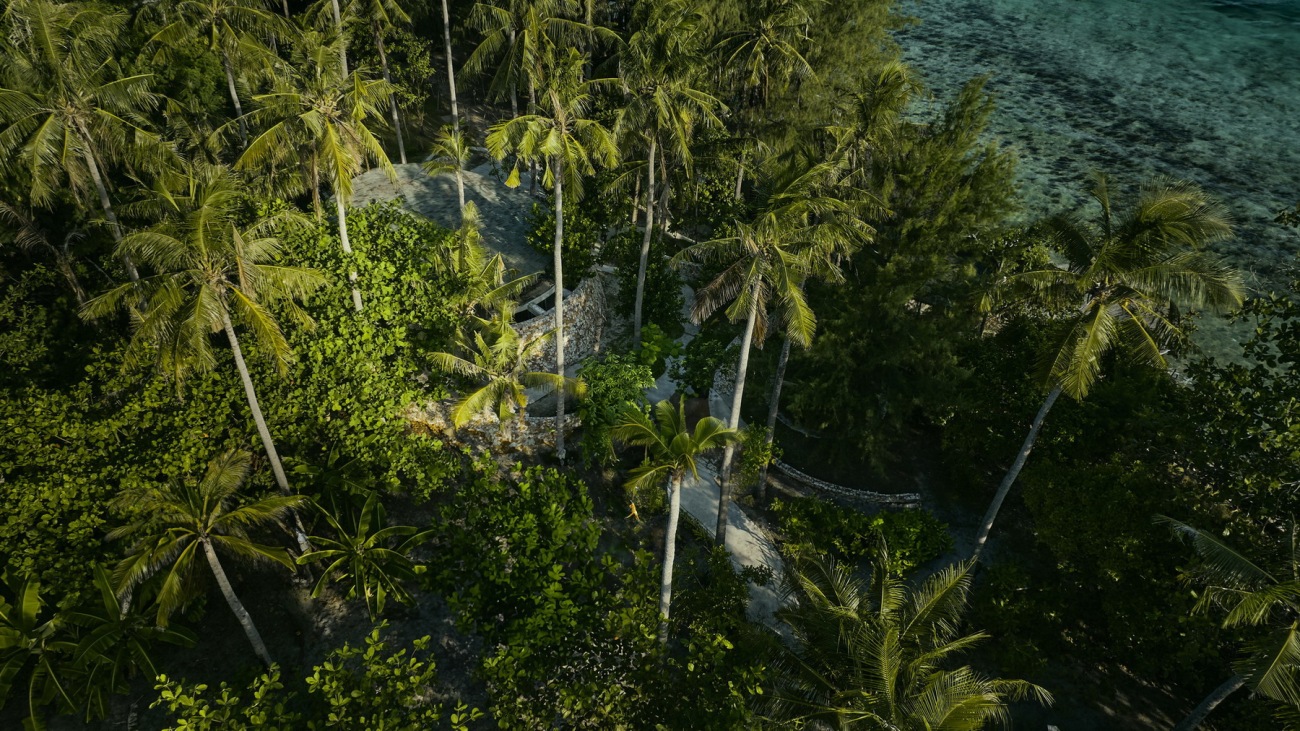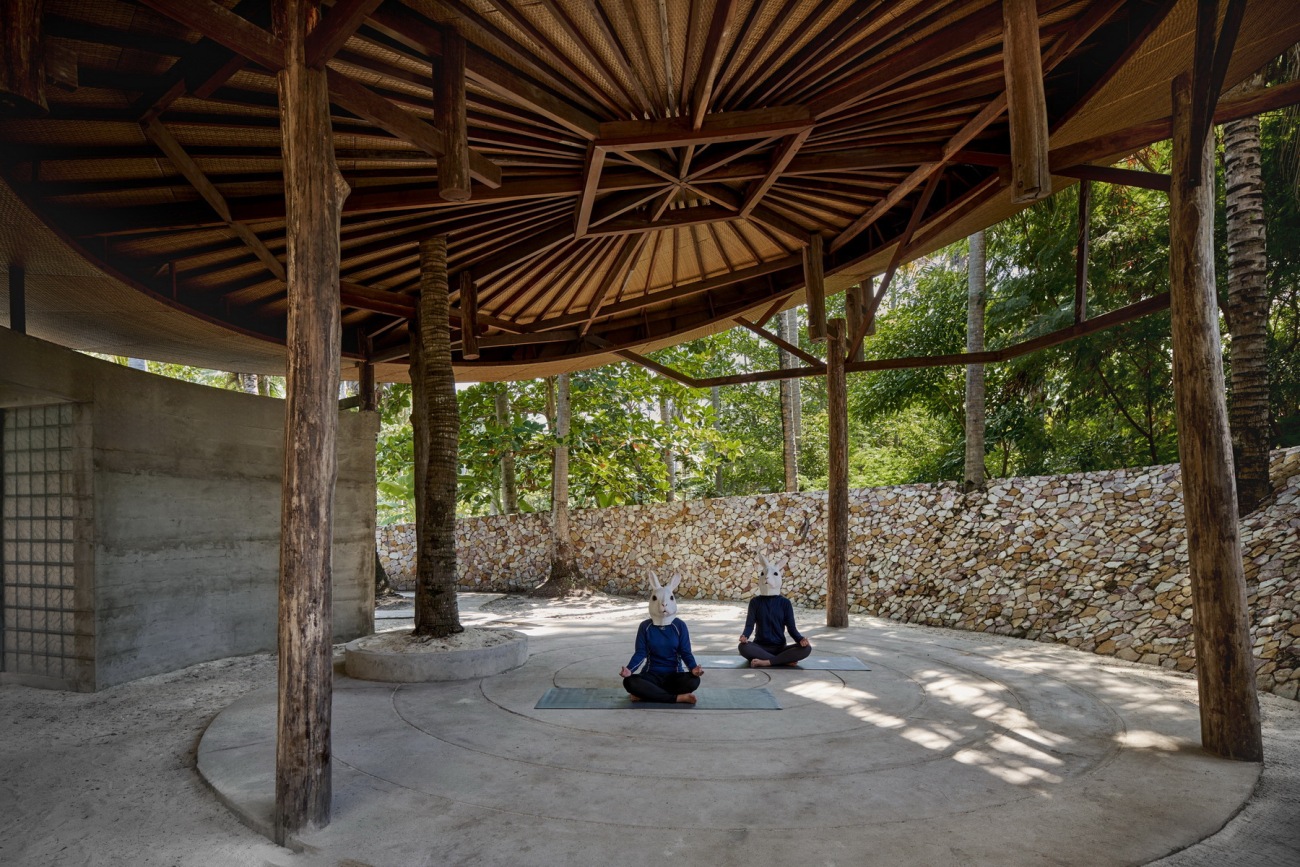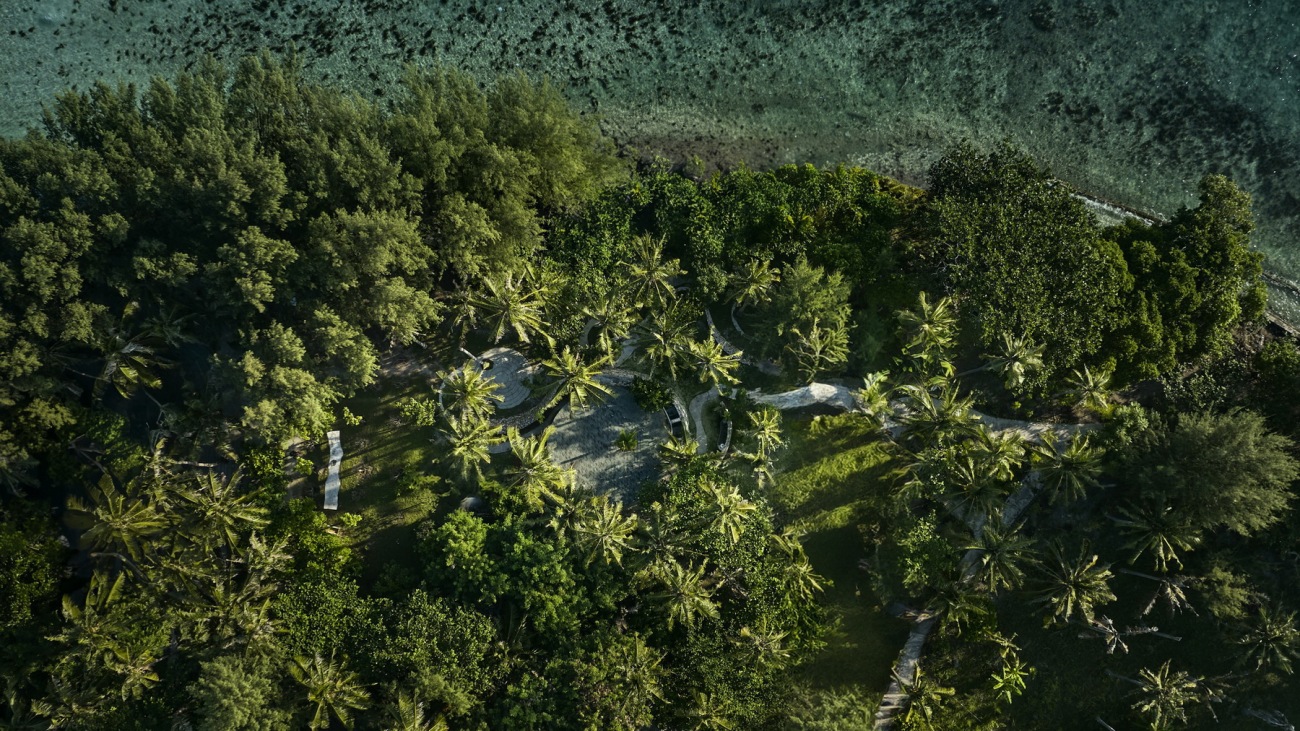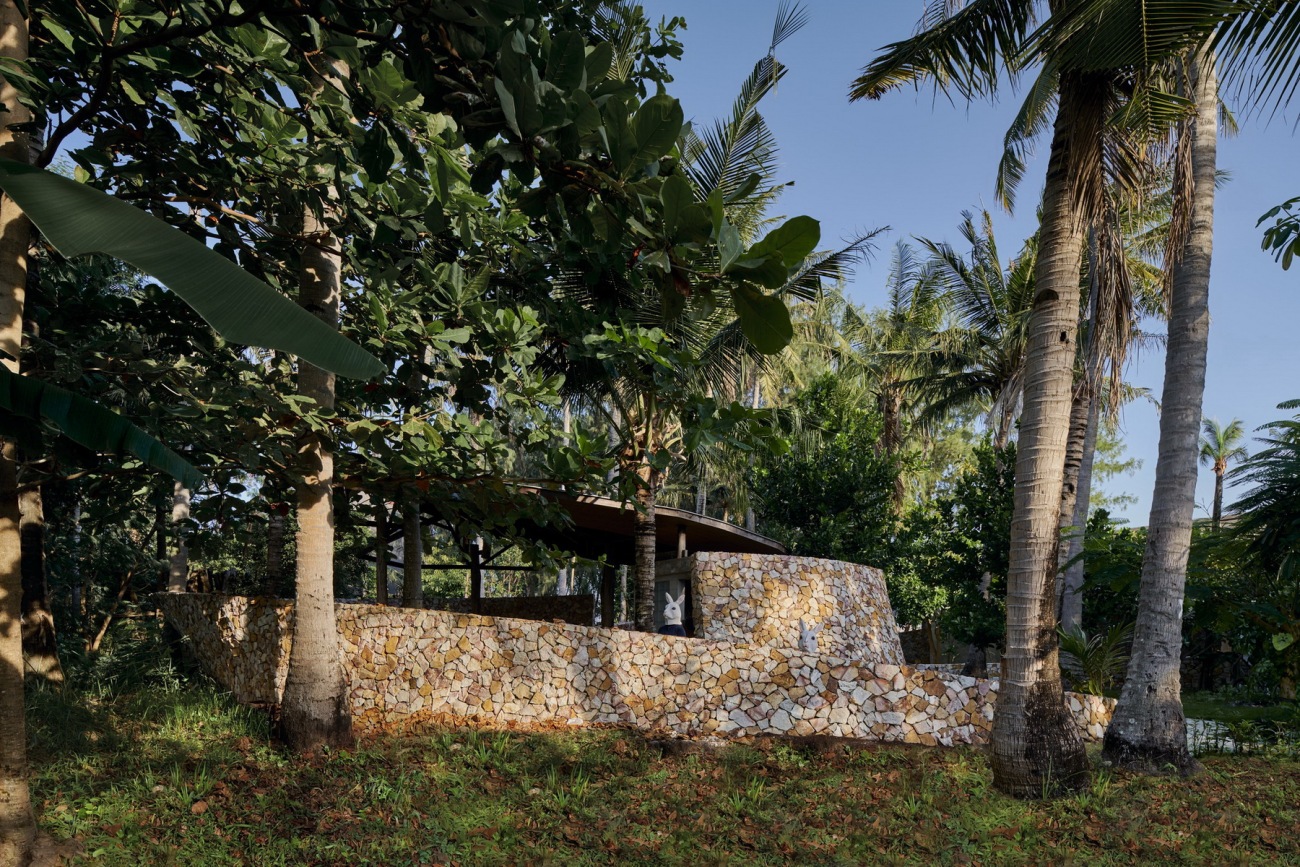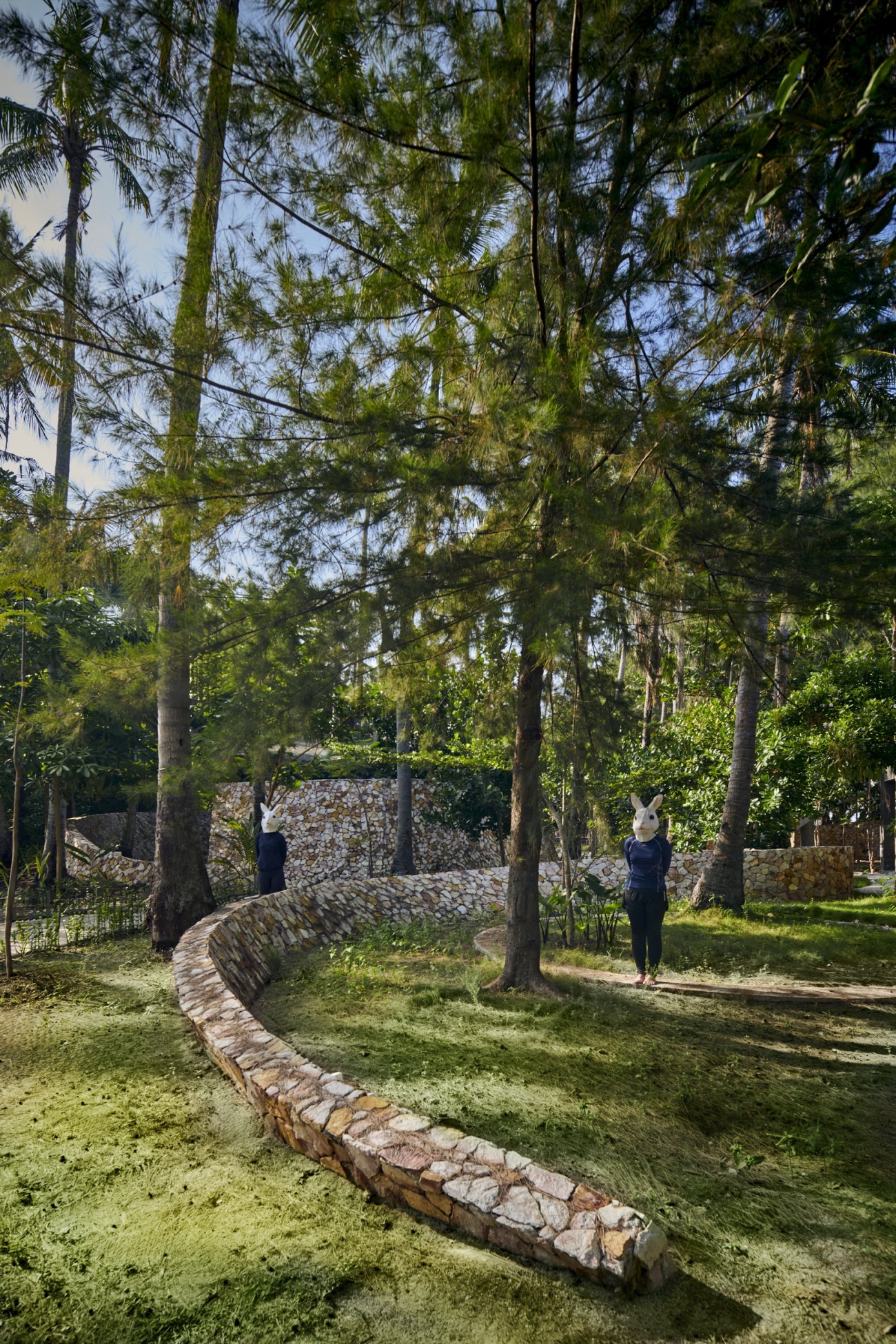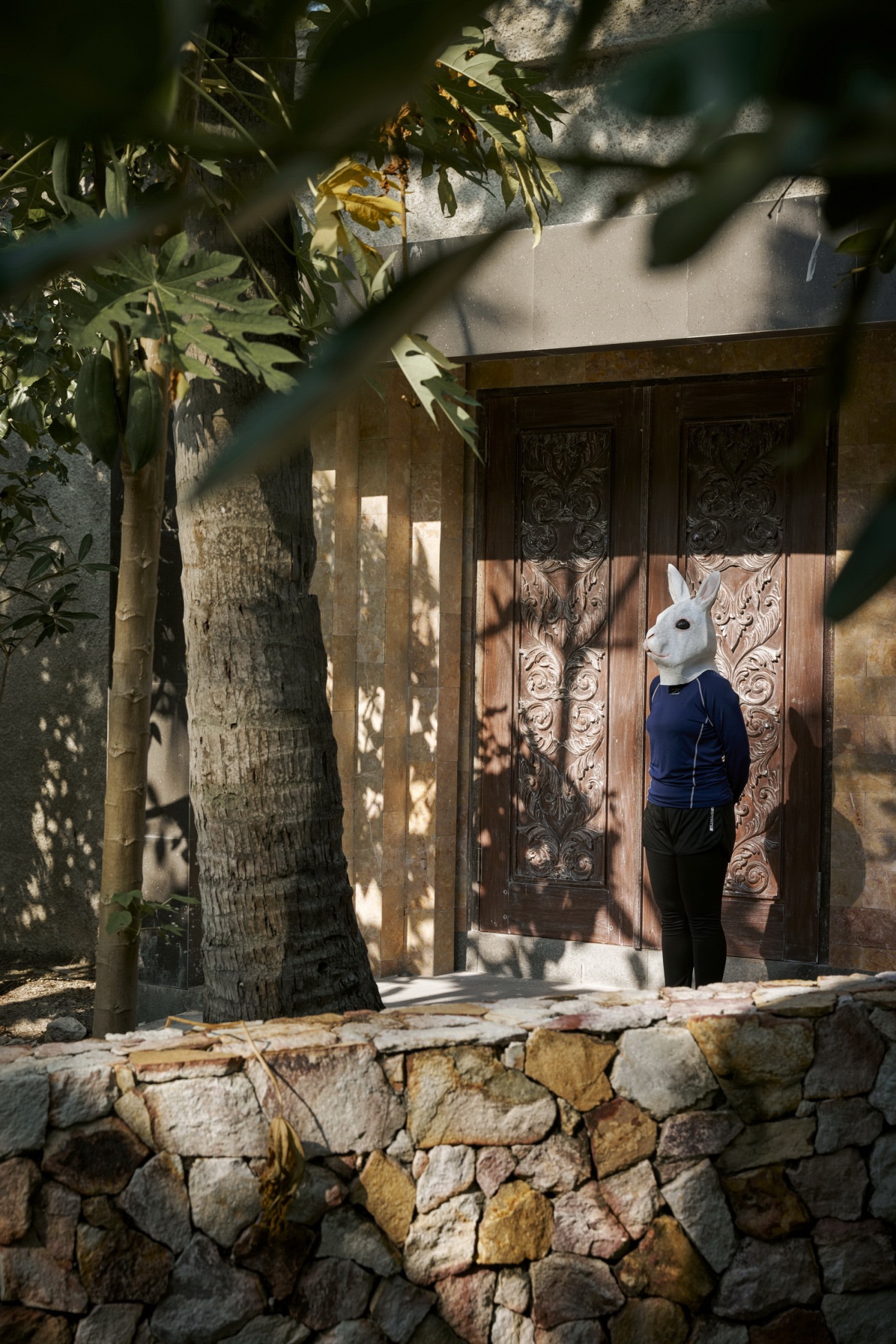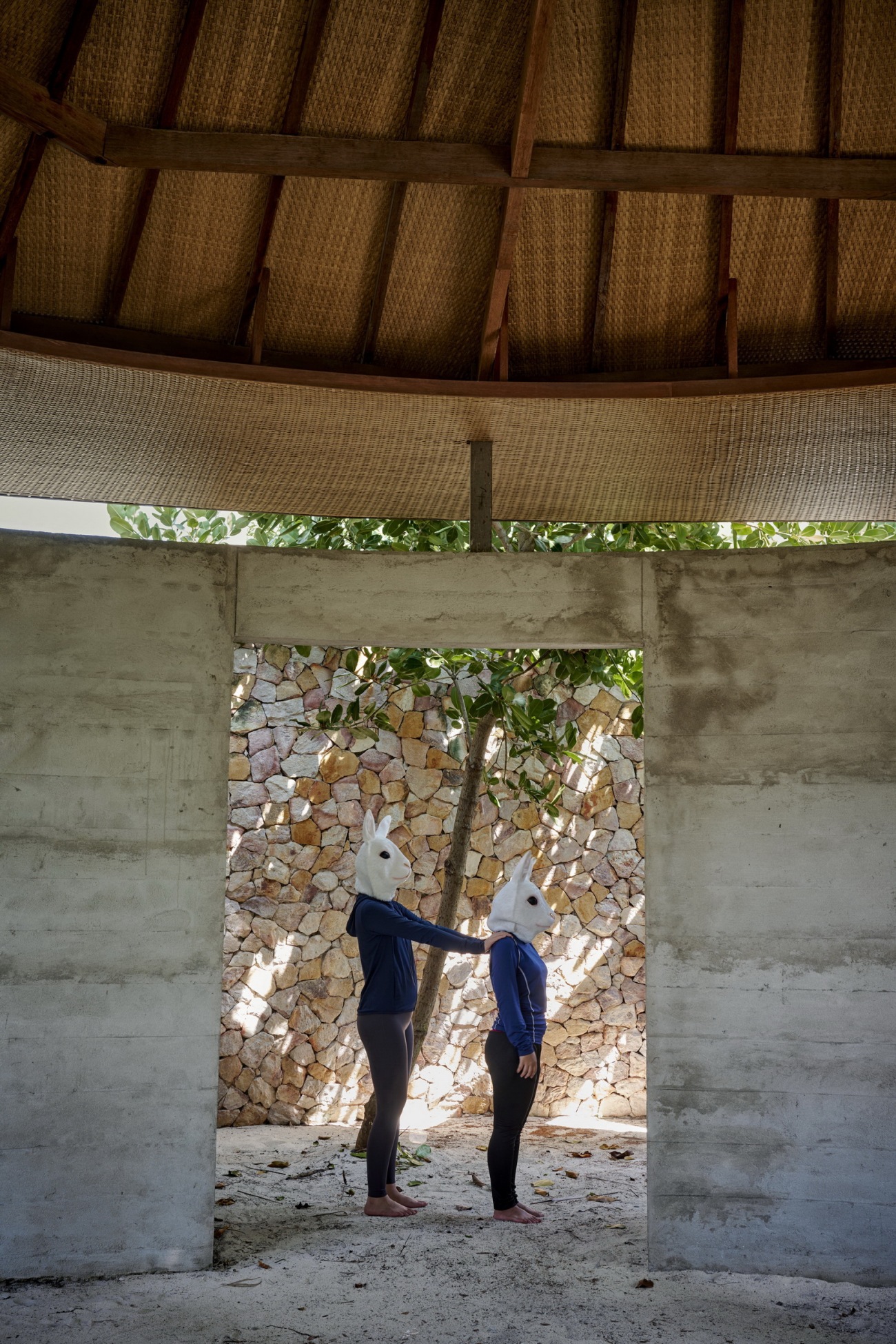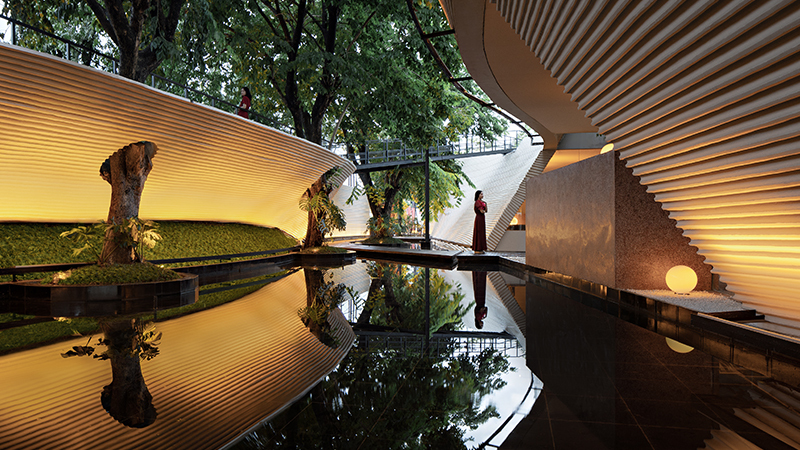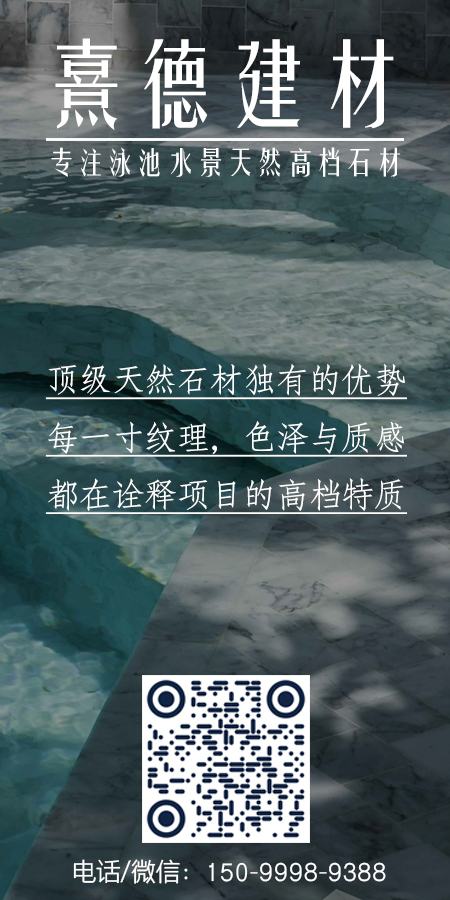椰子健康花园的使命是创造一个独特的瑜伽中心,激发情感和体验,同时遵循公平使用的标准。该场地以其宁静和自然的材料色调而独树一帜,体现了极简建筑技术的简单与优雅。为了为用户提供难忘的触觉体验,采用了反映岛屿美学和氛围的材料,如强化原位夯土、木材和当地来源的天然石灰岩,这些材料以非常规的方式运用,以补充现有景观的宁静美。
Coconut Wellness Garden's mission was to create a unique yoga center that evokes feelings and experiences while adhering to the standards of equitable use. The site stands out with its serene and natural material palette, characterized by the simplicity and elegance of minimalist construction techniques. To provide users with an unforgettable tactile experience, materials that reflect the aesthetics and vibes of the island, such as reinforced in-situ rammed earth, timber, and locally sourced natural limestone, were used in unconventional ways to complement the serene beauty of the existing landscape.
该花园位于卡里穆岛的一个私人岛屿上,旨在成为一个优美的目的地,优先考虑自然创造的空间的真实性,而非任何重型建筑。该岛后来将提供多种高质量服务,使其成为理想的放松和恢复之地。瑜伽花园是增强自然风光的设施之一,阳光在精心打造的天然石表面上创造出不断变化的阴影效果。
Located on a private island in Karimun Jawa, the garden is designed to be a pristine destination that prioritizes the authenticity of spaces crafted by nature over any heavily constructed architecture. The island will later offer a diverse range of high-quality services, making it an ideal place for relaxation and rejuvenation. The yoga garden is one of the amenities that enhances the natural scenery, with sunlight creating a constant play of shadows on the carefully crafted natural stone surfaces.
从外部看,圆形建筑上光与影的交错为游客创造了细腻、均匀且不断变化的体验。椰子花园的整体氛围完全采用当地材料设计。流动的外墙和内墙是由于现有空间中椰子树的有机和异质特性而必需的。内部隔断的放松布置包围并隐藏所有不规则性,形成一个与自然无缝连接的流动空间。石灰岩加固的夯土墙在物理上过渡到外部,并光学上将花园分为四个部分:瑜伽广场、健身区域、室内潜水教室和日落平台。
From the exterior, the interplay of light and shadow on the circular building creates a nuanced, uniform, and ever-changing experience for visitors.The fluid exterior and interior walls were necessitated by the distinctly organic and heterogeneous coconut trees of the existing space. A relaxed arrangement of interior partitions envelops and conceals all irregularities, forming a fluid space that seamlessly connects with nature. The limestone-reinforced rammed earth walls transition physically to the exterior and optically divide the garden into four sections: the yoga plaza, the gym area, the indoor diving classroom, and the sunset deck.
中心不对称的对称圆形平面非常适合冥想空间。游客的流动是健康大厅内部组织的关键考虑因素。必须确保合理安排的流动路线,以避免重叠或绕行。该项目具有近乎圆形的平面,形成波浪状的包围墙,创建直径为30米的圆圈。这个圆圈的周边作为游客的流动路线。这样的布局策略有效地创造了隐私,而不牺牲户外体验。内部墙壁转变为倾斜的座位配置,以容纳大型观众参加健康讲座(如有需要)。
The centrally asymmetrical, symmetrical circular plane is well-suited for the meditation space. The circulation of visitors is a key consideration for the internal organization of the wellness hall. It is essential to ensure a logically arranged circulation route to avoid overlaps or detours. The project features a nearly circular plane, forming inscribed waving walls that create a circle with a diameter of 30 meters. The periphery of this inscribed circle serves as the circulation route for visitors. Such a layout strategy effectively creates privacy without sacrificing outdoor experiences. The interior walls transform into an angled seating configuration to accommodate large audiences for wellness lectures, if needed.
该项目受传统建筑智慧的启发,利用当地树木创造堆叠的大截面柱子,以支撑8米的对角屋顶悬臂。这些柱子以垂直和水平的方式排列,以固定次级小木梁。屋顶包裹着木瓦,设有藤编天花板,椭圆形浮动屋顶向东倾斜,允许早晨的自然光透入,供瑜伽练习者和潜水者开始他们的一天。
Inspired by traditional construction wisdom, the project utilizes local trees to create stacked large-section columns that support an 8-meter diagonal roof cantilever. These columns are arranged both vertically and horizontally to secure secondary small wooden beams. Wrapped in wood shingles for the roof and featuring a rattan ceiling, the oval floating roof tilts to the east, allowing morning natural light to penetrate for yogis and divers as they start their day.
传统木结构中固有的可持续概念值得注意。由于该场地位于私人岛屿上,必须尽量减少由船运输的任何进口材料,因为这会导致高碳足迹。这个原则特别体现在建筑既作为家具又作为结构的理念上。一个说明性的例子是使用当地土壤和石头形成墙壁,同时处理过的椰子木材作为屋顶结构的独立基础。这些建筑利用当地木框架作为结构系统,柱子上雕刻有榫眼以插入小木梁,上面放置分隔面板。这种做法反映了当地建筑智慧,并与资源保护的理念产生共鸣。它不仅节省了材料和空间,还将结构、家具和空间融为一体。
The sustainable concept inherent in traditional wooden construction is noteworthy. Since the site is located on a private island, it is crucial to minimize any imported materials transported by boat, as this would result in a high carbon footprint. This principle is specifically embodied by the idea of architecture acting as both furniture and structure. An illustrative example is the use of local earth and stones to form the walls, alongside treated coconut timber serving as the independent foundation for the roof structure. These constructions utilize local timber frames as the structural system, where columns are carved with mortises for inserting small wooden beams, above which divider panels are placed. This practice reflects local construction wisdom and resonates with the ethos of resource conservation. It not only saves materials and space but also integrates structure, furniture, and space into a cohesive whole.
Main Information
Project Name: Coconut Yoga Garden
Office Name: RAD+ar
Office Website: radarchitecture.net
Social Media Accounts: @radarchitects
Contact email: visionary@radarchitecture.net
Firm Location: Jakarta-Bali , Indonesia
Completion Year: 2024
Gross Built Area (m2/ ft2): 1000 sqm
Project Location: Karimun Jawa, Indonesia
Program / Use / Building Function: Public Space / Wellness
Lead Architects: Antonius Richard Rusli
Lead Architects e-mail: studio@radarchitecture.net
Photographer
Photo Credits: William Sutanto
Photographer’s Website: https://www.artipictures.com/
更新日期:2024-08-19 17:21:47
非常感谢 RAD+ar 带来的精彩项目, 查阅更多Appreciations towards RAD+ar for sharing wonderful work on hhlloo. Click to see more works!

